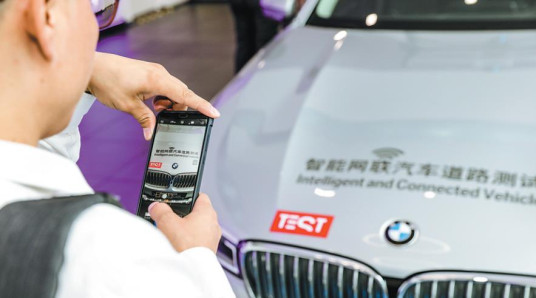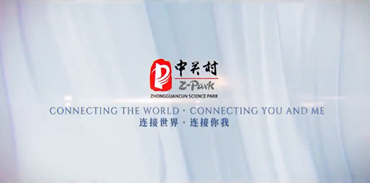BMW teams up with Chinese companies to drive R&D of autonomous vehicles
 |
|
A visitor takes a photo of a BMW autonomous driving test vehicle in Beijing on July 19. [Photo provided to China Daily] |
BMW is speeding up its efforts to develop autonomous driving vehicles in China, its largest market worldwide, as the German premium carmaker continues to transform itself into a technology company.
On Friday, it announced a deal with Chinese technology firm Tencent Holdings to build a computing center that will help develop self-driving vehicles in the country.
The center, which will start operations by the end of the year, will leverage Tencent's capabilities in cloud computing and big data to develop autonomous driving technology and products adapted to Chinese road and traffic conditions, said BMW in a statement.
The two companies did not disclose the investment in the center and Reuters, citing sources familiar with the deal, said the center will be built in the city of Tianjin.
The deal with Tencent came one week after an agreement with NavInfo, a Beijing-based high-definition mapping service provider, and another with China Unicom for 5G technology in early July.
"We are convinced that China is already at the forefront of defining future mobility. We at BMW will actively leverage our comprehensive research and development competency to support smart mobility and smart city development in China," said Jochen Goller, president and CEO of BMW Group Region China.
"Together with our Chinese partners, we are jointly shaping the future of mobility," he said.
BMW received its autonomous driving permit in China in May 2018, the first among international premium carmakers, which has since enabled it to test its fleet on public roads in Shanghai.
The carmaker said China has the most complex traffic in the world and that has made its research facilities in the country essential.
Its teams in Beijing and Shanghai have nearly 100 engineers focusing on the development and validation of automated driving functions based on typical traffic scenarios in China.
BMW is already offering Level 2 autonomous driving functions in some of its models including the all-new 3 Series and 7 Series sedans.
The Level 3, or hands-off and eyes-off functions, will come in 2021 when the carmaker starts to mass-produce the iNEXT concept vehicle.
By then, BMW said it will have collected around 5 million kilometers of real-life driving data from its test fleet vehicles, and 240 million kilometers of simulation-generated data.
It is planning to conduct Level 4 fleet tests starting from 2021 in a number of countries including China. Level 4 can enable drivers to be hands-off, eyes-off and minds-off.
BMW is also introducing China-oriented connectivity features into its models.
Earlier this year, it announced the integration of Alibaba's smart voice assistant Tmall Genie into the on-board system of its vehicles.
Goller said BMW is sticking to its 2+4 strategic approach in China, which represents the two brands of BMW and MINI as well as the four fields of autonomous driving, connected vehicles, electrification and sharing services.
China is BMW's largest market worldwide. It delivered 350,070 BMW and MINI-branded vehicles in the country from January to June, up 16.8 percent year-on-year.

